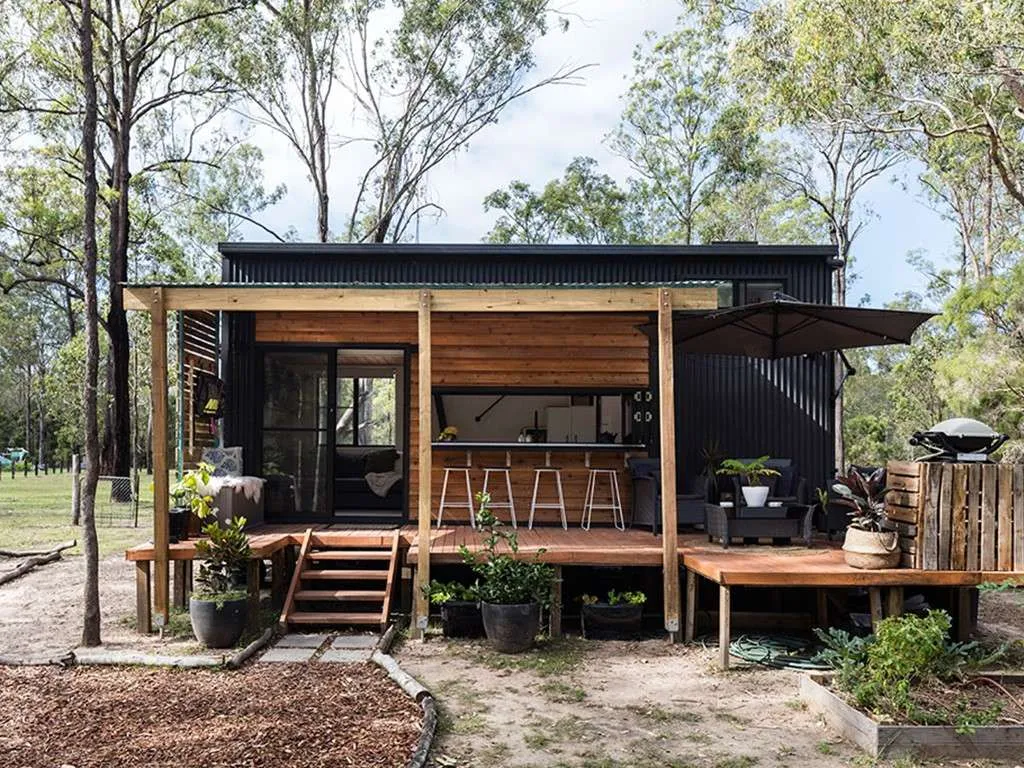If you look past the economics to the issue of sustainability, a tiny house typically has a smaller ecological footprint than it’s larger counterparts. With their smaller size, they use fewer resources during construction and require less land to occupy.
The Pitfalls of a New Industry

Any new industry leaves itself open to scams and misadventures.
Spencer Porter and his company MyTinyHomeKit from Melbourne took full payment of between $18,000 and $80,000 from over 40 customers and never delivered their homes.
The Eco-Friendly Tiny House
Many tiny home enthusiasts also pursue eco-friendly practices such as composting toilets, rainwater tanks, and off-grid energy systems. By promoting a more sustainable way of living, tiny houses can play a role in mitigating our impact on the environment.
Addressing Urban Sprawl
Then there’s the matter of urban sprawl. As cities continue to expand, they encroach upon valuable green spaces and agricultural land. Tiny homes offer a solution that allows for denser development without sacrificing quality of life. By utilising infill lots or repurposing under utilised urban spaces, we can maximise the efficiency of our urban areas and curb the spread of sprawl.
Challenges to Tiny House Living
We do need to acknowledge the challenges that come with tiny home living. Zoning regulations, building codes, and entrenched attitudes towards housing size all present obstacles to be overcome. With proactive policymaking and community engagement, these obstacles can be solved.
Tiny homes aren’t for everyone though as they may not be suitable for every situation. Families with children, people with disabilities, and those who require more space for work or hobbies may find tiny houses impractical. For singles, couples, retirees, and those simply looking to downsize, tiny houses offer a viable alternative.
A Promising Future
Tiny houses represent a promising way to address the issue of affordable housing. By providing a more cost-effective, sustainable, and efficient housing option, they can help soften the strain on our housing market and promote an environmentally friendly alternative.
No could be the time to embrace change and explore new approaches to housing that meet the needs of our society. Tiny houses may be small in nature, but their potential impact on our society may be huge.

